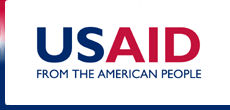Islamabad, August 1, 2006: The Governments
of Pakistan and the United States signed two agreements
to help Pakistan expand its economy today. The first
agreement is part of the U.S. Government’s five-year
economic growth assistance package to Pakistan worth
more than U.S. $73 million. The second is a Memorandum
of Understanding to allow the Competitiveness Support
Fund to partner with the Higher Education Commission
in support of initiatives that promote knowledge-based
economic development and ensure long-term economic
growth.
The bilateral agreement for USAID’s Economic
Growth commits $13.7 million in support for 2006.
The funding will enable USAID to provide over 130,000
loans for micro and small businesses in all four provinces
and FATA, continue support to promising industries
throughout Pakistan, and enable assistance to more
than 50,000 farmers in drought-affected areas of Balochistan
with new seeds, livestock and irrigation systems.
U.S. Ambassador to Pakistan Ryan C. Crocker and Pakistan
Minister of State for Finance Omar Ayub Khan witnessed
the signing for their respective governments. Ambassador
Crocker said, “The people of the United States
are excited to see a growing, vibrant Pakistani economy.
By appealing to Pakistanis’ entrepreneurial
spirit, the United States’ Economic Growth programs
in Pakistan will continue to help businesses grow
and reduce poverty.”
The second signing, the Competitiveness Support Fund
– led by the Ministry of Finance and supported
by USAID’s Economic Growth program – formed
a breakthrough partnership with the Higher Education
Commission.
“The main thrust of this initiative is to build
linkages between business and academia,” said
Omar Ayub Khan, Chairman of the Competitiveness Support
Fund and Minister for State for Finance. “Such
linkages will spark the kind of information sharing
that makes business more dynamic and supports the
commercialization of innovations developed at our
universities and research institutions.”
“Our partnership with the Competitiveness Support
Fund will bring a new dimension to the Higher Education
Commission that should help our researchers attract
better financing and shape their work to more directly
meet the needs of society and the economy,”
said Prof. Dr. Atta-Ur-Rahman, Chairman of the Higher
Education Commission. “Cooperation of this type
between business and academia has generated tremendous
innovation in the countries that have developed it,
not just in the United States and Europe, but also
in places like India, Thailand and Turkey. Pakistan
cannot afford to ignore these successes.”
One of the Competitiveness Support Fund’s main
objectives is to develop and support linkages between
academia and industry for knowledge-based enterprise
development. The fund will work with the Higher Education
Commission to provide technical assistance by engaging
foreign experts to support projects promoting knowledge-based
enterprises in Pakistan. The two will also work jointly
to establish a forum for the identification of research-based
projects that will further the development of a knowledge-based
economy.
The Memorandum of Understanding also states that
the Competitiveness Support Fund will be able to provide
matching grants to the Pakistani academic community
for projects that commercialize their research. The
fund will be able to help form partnerships between
academia and the business community to start new enterprises
and encourage the development of financing mechanisms
for these ventures.
The Competitiveness Support Fund will also act as
a bridge between local and foreign universities and
research institutions, particularly those in the U.S.
and Europe. These partnerships will advance international
best practices promoting innovation and addressing
workforce and technology development needs of local
industry.
|


